The article Eight things we would never do regarding end-of-life care in the ICU has been recently published online in Intensive Care Medicine, in What´s new in Intensive Care section. It´s signed by Ely, Azoulay and Sprung.
Authors want to share a global vision from three differents views and parts of the world, about situations and transversal concepts regarding end of life care in the ICU. Not everyone will be agree with this points, but debate and discussion is always healthy.
These are the points developed in the article:
- I would not provide a non‑ or no longer beneficial treatment if requested by a patient and/or family or when the medical team recommends something that the patient legitimately wishes to forgo or considers overly burdensome.
- I would never intentionally allow ongoing pain, anxiety, dyspnea, or other forms of suffering without doing all I can to relieve that suffering unless the patient specifically refuses such treatments in favor of ongoing suffering to allow some element of benefit (e.g., full consciousness to optimize communication with a loved one).
- I would not apply restricted visitation policies.
- I would not assign bedside care and communication about shifting from cure to comfort to subsets of team members.
- I would never ask the patient “do you want everything done?”.
- I would never make an end‑of‑life decision and implement it without discussing it with the patient and/or family as well as other medical team members.
- I would never tell the patient and/or family how long the patient will live
- I would never intentionally shorten the life of a patient by withdrawing treatment to cause death or intentionally administer a lethal drug or toxin.
In conclusion, we should be capable of putting in practice the famous mantra “cure sometimes, relieve often, and comfort always.” The evolution of ICU medicine continues to bring many extraordinary life-saving interventions, but it does not at all supplant the priority of the last two aspects of our job: to relieve suffering and comfort our patients and their families. The take-home message could simply be to focus more resolutely on accomplishing the these two: relief of suffering through better palliative care and, in so doing, ushering in the “comfort always” piece of ICU medicine.

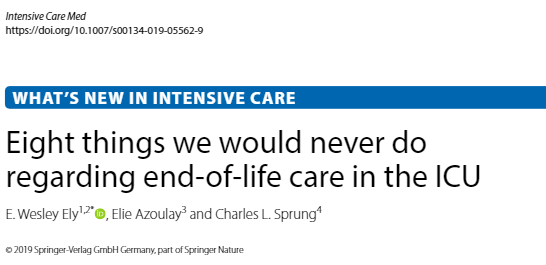

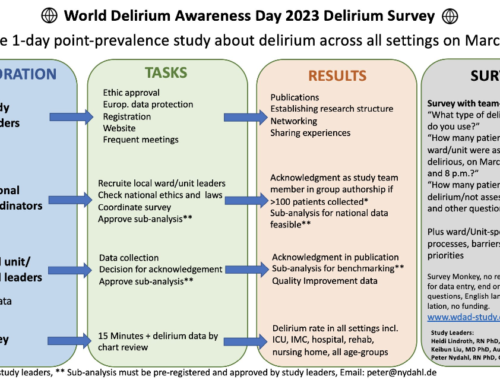
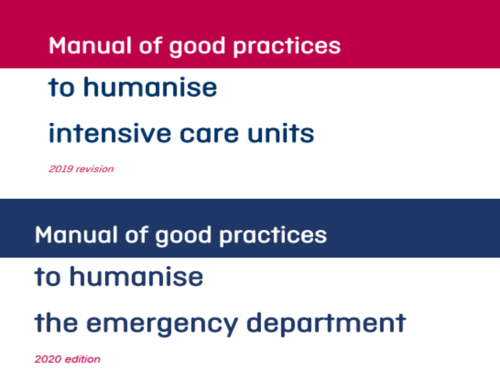
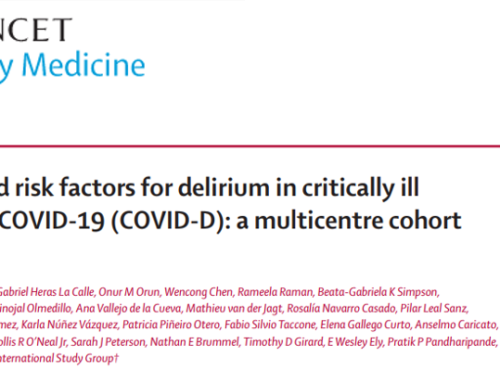
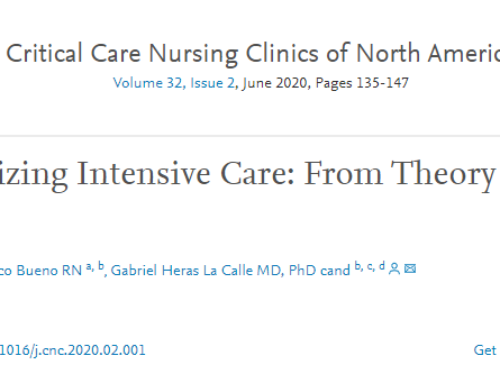

I am concerned about press reports that because of current virus nfection so many people in ICU are dying alone. I am not medically trained but have been involved in lay ministry at hospital. Know how gentle recitation of the Lord’s Prayer has surprised staff in bringing down dangerous high blood pressure, Can a person on ventilator have a headset accessing familiar voices prayers hymns or mantras and music whatever would be culturally appropriate. With this one so many of the dying are like me older and perhaps more traditional in their beliefs.